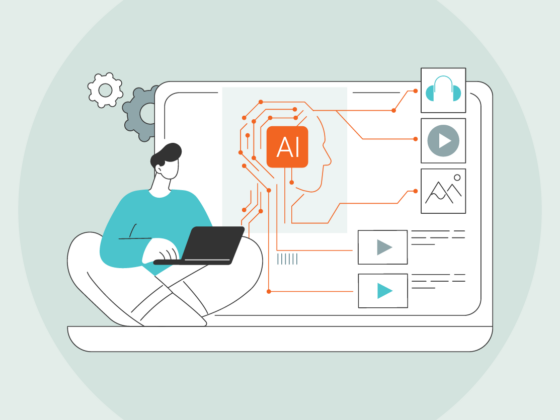Nextpoint’s Expert Witness is a feature offering insights from lawyers, technologists, law enforcement, entrepreneurs, and other interesting people influencing our industry and world. Check back regularly for thought-provoking expert opinions.
The Man with the Virtual Law Firm
Chad Burton is a serious multi-tasker. While building a fast-growing practice at Burton Law, he’s also managed to become a prominent advocate for dismantling the traditional law firm business model.
Chad started his legal career working for a large law firm focused on business litigation before leaving to start a solo practice. In 2011, he announced Burton Law would become a virtual law firm – no central office, dispersed practices, and run entirely on cloud-based software and technology. The idea is that a virtual law firm can offer professional legal services at a lower cost thanks to the obvious cost savings in real estate, IT budget, and other trappings of the traditional practice.
Chad practices in Dayton, Ohio and now has 7 attorneys working in Ohio, Washington D.C. and Kentucky. He recently talked to Nextpoint about his vision of the virtual law firm.
When you say virtual law firm, what do you mean?
The label “virtual law practice” has emerged as a way to describe emerging law firm business models. Firms can range from solo practices delivering services online to multi-lawyer, multi-jurisdictional law firms (and everything in between). Ours falls into the latter category.
We are a business, litigation and estate planning law firm that provides full legal services, as well as online services through our website. We operate outside a traditional brick-and-mortar setting but use centralized office space for meetings when needed.
Cloud-based technology serves as the backbone for our operations and how we serve our clients. The theory behind the model is that with improved efficiencies and with our professionals working in environments where we will get their best stuff, client service is improved.
Hear Chad outlining how Nextpoint fits his need to be mobile.
Has the virtual law firm model evolved since you first launched?
The model is constantly evolving. You always have to be looking at ways to get better. Since our launch, we added the online delivery of legal services. We continually look for ways to develop and improve the delivery of legal services to our clients. “The way things have always been done” has no place under our model as a default answer.
There are definitely others working in distributed law models. We will see more and more of these firms as time goes on working outside the traditional brick and mortar setting. Each firm has (or will have) its own flavor of operations. There is a lot of room for creativity. This is a positive trend for the profession.
Coming from a large law firm environment, what’s been the biggest challenge?
It is all a challenge – in a good way. You do not get better results by taking the easy route. We have an open environment, so feedback from team members on what works and doesn’t work is viewed as a positive. We have tried some ideas internally that just did not work. That is okay. We learned a lot and evolved.
What do you say those who might question the viability of a virtual practice?
We work in the legal profession so criticism comes with the territory. Again, this is a good thing. Discussion and challenging the way things are done helps provide better results. Working as we do will not be for everyone.
Some firms will want everyone under one roof, all the time. We see it differently. At the end of the day, what matters is that our clients are served. Where that work gets done has less and less relevance as we move to a more mobile society/profession.
Are there things you miss about camping out in a traditional law firm office?
I have become completely mobile. I work off my iPhone and iPad, both for minor projects and heavy lifting, such as brief writing. I definitely do not miss the traditional environment. That said, if I need a place to hold a meeting or to hide and do some work, we have our office space available on an as needed basis. Interestingly, everyone in our firm works a little differently. Some like/need to be in an office environment, which is available. Those of us who do not need it, and get better work done outside of an office environment, have that ability and freedom.
Despite the distributed nature, we still get together pretty regularly in person or use videoconferencing. Personal interaction is still incredibly important especially in a collaborative environment.
What was your original motivation for adopting cloud applications in your firm?
Using cloud-based technology is necessary under our distributed model. If we are going to work as we do, easy access to information is necessary. This goes for day-to-day operations through, for example, using Clio for our law practice management platform, Box for document management and DirectLaw for the online delivery of legal services.
That is day-to-day. Since we provide full-service representation and are involved in a lot of litigation, managing those matters remains important. That is what we like about Nextpoint. Being cloud-based, Nextpoint allows us to handle electronic discovery on the go and in different locations.
( Read our whitepaper on Managing eDiscovery in the Cloud )
Is security of client data a valid concern with cloud applications?
Yes, it is a valid concern. Not all cloud-based applications are created equal. To maintain client confidences and to avoid the inadvertent disclosure of data, law firms have to do their due diligence on researching and understanding how their data is being stored.
Under the comments to ABA Model Rule 1.1 regarding competency, lawyers now have to understand the “risks and benefits of technology.” This means that for competency purposes, lawyers have to understand technology, much like they do the substantive areas of the law.
To me, this means that the companies that provide technology platforms for lawyers should no longer simply be treated as “vendors.” They really become partners in your business and how you deliver client services. This is similar to retaining an accountant or outside CFO to analyze financials. If a particular company is not willing to have the conversation with a law firm about data storage and use and security protocols, then red flags are going up everywhere. However, those that serve the legal industry tend to get concerns over heightened awareness of security.
Can a law firm run a truly 100 percent cloud-based operation?
Here is what is fascinating about a lot of the cloud-based platforms out there: they tend to run themselves. The learning curve tends to be low, so the need for an internal IT person is not as necessary. This can be a huge cost savings. Much of what you pay for through licensing fees or data storage usage includes training and troubleshooting. If a lawyer thinks that technology is the devil and won’t go near it, then this is really a non-issue. In our firm, understanding technology (or being willing to learn) is a must.
What are the benefits of using cloud applications for your clients?
When a law firm is adopting a technology platform, it must be done with client service in mind. That’s why lawyers exist. Some elements will be obvious to clients, such as using online client portals for communications and document sharing. Others will be invisible because the technology just helps the law firm work in a more efficient manner in the background. The right mix of technology and operations will result in more satisfied clients with lower or alternative fee arrangements.
( Note: Burton Law has used Nextpoint complete eDiscovery technology for over 3 years. )
Where do you see your virtual law practice going in the future?
We will continue our hybrid approach of providing full-service representation and online delivery. The need exists for both. As far as virtual practice goes, this is where I think a lot of firms will gravitate. There is such an increased sense of mobility in our culture that is permeating the legal profession. Being able to operate on the go will force more lawyers to look at their current set up and determine whether there is a better way to operate.






